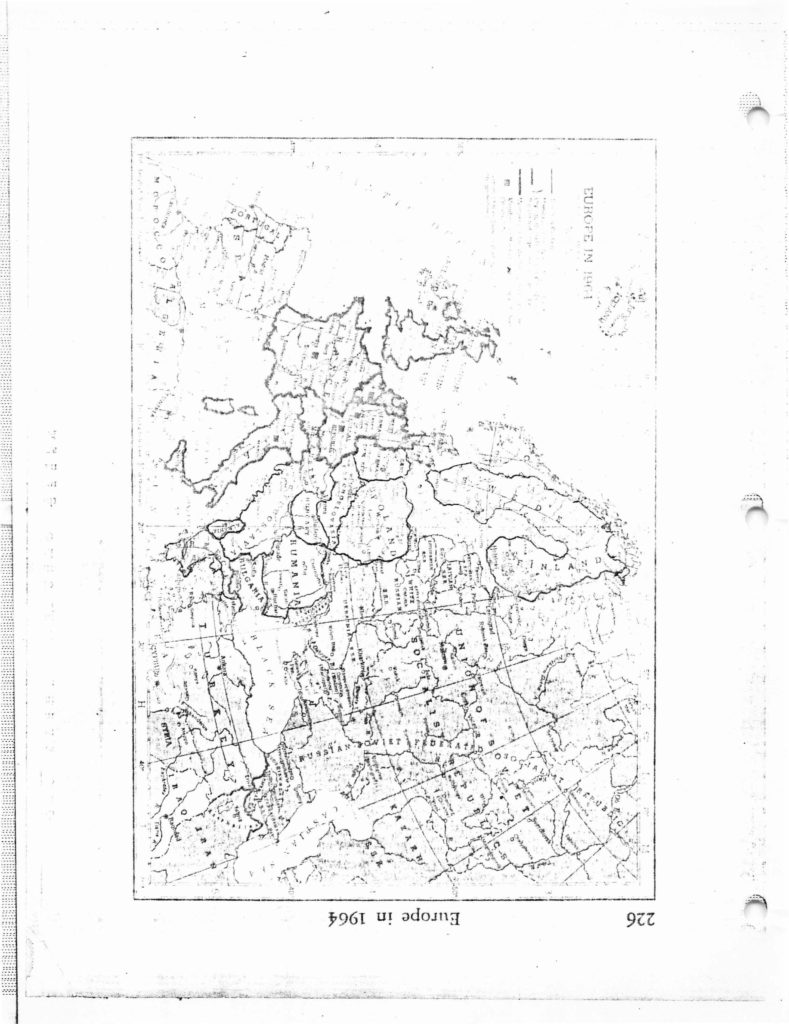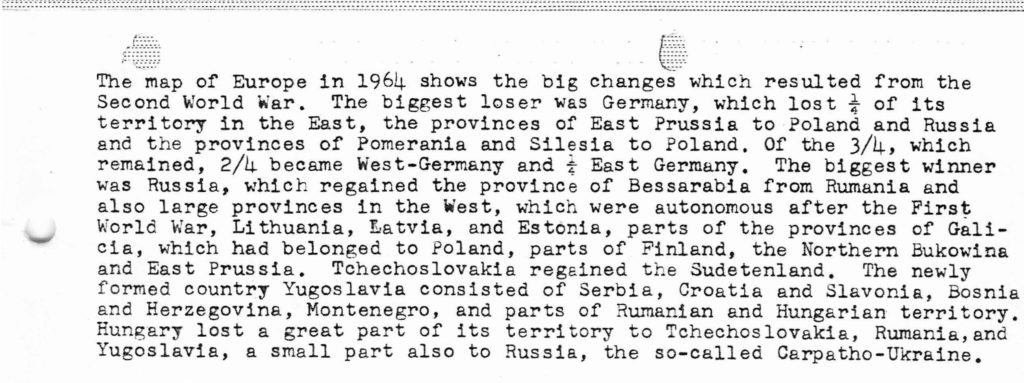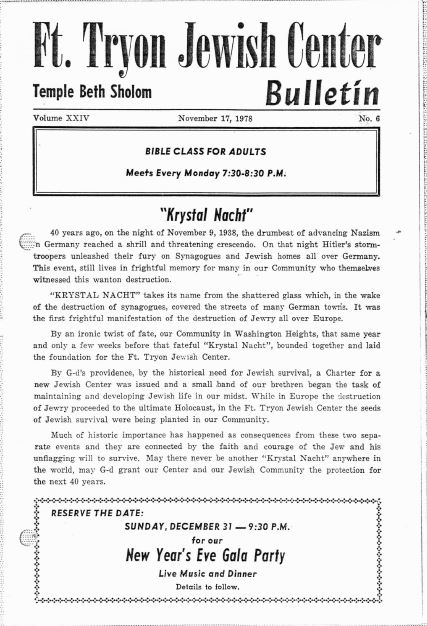By Antoinette Ziegler (Translation from the German original)
The disgrace that “Brunner II” was “a human being” is annulled. The physical form, which alone entitled this designation, is annihilated. But what never can be expunged is his crime. He received power, much power, and that he could not endure, that unworthy; that he could not bear, on that he foundered, and used his rage against those, over whom he had power.
As camp commander, he took over an especially big concentration camp. It was unnecessary to build it. It was not necessary to arrange for work people, waggon loads with material to be brought in. It was unnecessary to build barracks and camp roads. It was not necessary to lay out wire grates and to charge them with electric current. This concentration camp was ready: 1-to 4-flight dirty houses in narrow streets, as substitutes for the electrically charged wire grates, closed in by the Danube river and the Danube canal. That was the concentration camp Leopoldstadt.
There were brought the Jews from all the districts of Vienna. Within one hour they had to leave behind the homes, where they had lived until now, and they were squeezed together. Two, three, four families in the small homes, up to ten families in the larger ones. Into one room, three families were put, in disregard of the laws, which civilization and shame demand, to protect intimate spheres of privacy of every person. The “hebraic low-class people” tried nevertheless bashfully to find acceptance of these laws. They put wardrobes and other pieces of furniture up as room dividers; this way there lived in 4 square yards near the first window one family, another one in 4 square yards next to the second window, and the space in the corner near the oven was the home of a third family. A breakfront and a sofa were the walls of the rooms. There was often not enough room for two beds, So, there slept two people in one bed, and the other members of the family on a chair or on the floor. In bigger families they arranged a turnus, so that each member could sleep in a bed at least once a week.
The mister “Reichspropagandaminister” had declared on the pogrom day, the 10th of November, 1938, to the whole world that they were not planning the re-institution of ghettos. But in reality, the preparations for the extermination were already conceived, and for technical reasons of easier and more rapid unwinding of the planned deportations, that large concentration camp Leopoldstadt was created, in order to have there the Jews on one place, to avoid to bring them together from different districts of the city, and thereby be delayed.
The appeal in this concentration camp was: “Registration,” and there were dozens of such registrations. Each one was the beginning of a new crime. The race-sadists had a whole scale of tortures at their disposal, which they used with unbelievable elaborateness. The obligation to work service for sorting of garbage, in the commissariat warehouses Schwechat or Prater, “Schnabl” in Doebling, or joinery of wooden boxes in Favoriten, in the “Habsburg”, or in the mat-making house in the Leopoldsgasse (Julius’ work place in a cellar without light and air), where about 100 persons were working, with a single toilet; the one next to it was not for Jews, because the “Arian” housekeeper used it). These poor workers were mostly old, often seriously sick people or invalids from the last war and intellectuals, who worked daily for 10 hours, with 1 hour pause at noon. Julius “earned” with that 10 pfennigs per hour, They were gladly accepted and the men and women forced to do that work worked gladly, in the hope that that would help them to avoid other chicaneries. The heaviness of the work was not considered, and it had to be accepted as irremediable that men and women did the same work. The Nazi and SS-supervisors in the different work places knew well by ill-treatment and threats to force even the weakest women to carry heavy trunks of wood, and that sick people in the steam-chambers of the giant laundries worked till they fainted.
The feared work-service obligation meant the transfer from the concentration camp Leopoldstadt to another concentration camp. And when through the rumor-channels the piece of news came, which brought the respiration to a halt that a new transport is being organized, and when then the registration, organized in alphabetical order, and the first letter of the name came closer to the name of ones own husband, then a terrible fear started in the concentration camp Leopoldstadt, which reigned for days and weeks, the fear, terrible fear, which one could not yell out and for that reason was even more terrible. From street to street, from house to house, from door to door flew the word: Transport!. Transport to Poland! Transport to Litzmannstadt! Transport to Theresienstadt! Oh, at first they were human, they invited “parasitic desert-physiognomies” with 15 kilograms baggage to come to the Sperl school. (In that way uncle Beni and aunt Gina went away). That friendly invitation some people did not comply with, but preferred to lead the life from now on as “submarines.” The Gestapo was now smarter. They did not invite anymore for the transportation and started with arrests. If one acceeded to go in the alphabetical order, each one could approximately know the moment, whether he will go today, tomorrow, or — what luck — the day after tomorrow. But the inventive faculty of the gentlemen of the transport office of the Gestapo was inexhaustible. What fun it was, not to prepare the Jews anymore, but simply to surprise them. And one day, police autos closed up a whole street. House after house, apartment after apartment, room after room they combed through and all people were simply loaded on trucks. And when the whole family was not present, then they simply took along those whom they found. Women to separate from their husbands, children from their parents, to add to the misery of deportation the heart-rending torments of separation, that meant for the noblemen of the Gestapo only a piquant increase of their enjoyment. 80 year old men, and 2 weeks old children were taken away, sick ones and healthy ones. Was one too old or sick to walk over the stairs, then they dragged them down and lifted them up on the transport auto. (Aunt Klemi was carried away that way). In the days of increasing intensity of the deportations, people were also taken away at night. (Aunt Rosa was in that way taken away at night). If one heard an old woman in the neighboring apartment at first whimper, then imploring, then desperately yelling to the invading catchers “Let me stay here, please, let me stay here,” then one held the hands to the ears to close them up. In an entanglement of valises, boxes, and balls, 40 to 50 men, women, and children were sitting and lying on such a transport auto, crying, sobbing, and whimpering, also yelling, but also mute, resigned, apathetic like animals.
Capos? Yes, we had them also in the concentration camp Leopoldstadt. The Jupo, the police of Jews. That was also a joke, ferreted out by a perverted brain, to use even Jews as Gestapo constables. And there were really a few, who out of fear and in the hope to save their own lives, did these services with a brutality, which found the consent of the assigner, and was noted down by them with diabolic enjoyment.
As in the concentration camp, the daily program was strictly regulated by camp rules. After 8 o’clock in the evening, nobody, who did not belong to the “aryan noble-race” was allowed to show up in the street, and he had to remain till 6 o’clock in the morning at his sleeping place. The control tours of the German police and the guards at the bridges, were looking after the observance of these rules. No privilege of relationship to arians could protect those, who transgressed the rules, from being shipped with the next transport to Auschwitz. That meant death sentence. To justify the only microscopically visible remainder of the faith in humanity, it has to be acknowledged that there were policemen who let the transgressor run and in such a way to save his life. (We had had the worst experiences with the policemen at the precinct Praterstrasse, to which we belonged. Julius had to appear there on the first day of each month, to receive a paper ,which showed that he was alive, as otherwise his pension from the railway would not have been sent out. Each time, the ones which were there on duty, insulted him in the rudest way, when he appeared there. Days before he was already afraid, and days afterwards he had pains in his heart from the excitement, till I decided, in spite of his struggle against it, to accompany him and, in case it would be necessary, to defend myself. And when we both appeared there, they asked me, who I was, and when Julius answered “That is my wife,” nothing was said anymore, and in the months which followed, he had no difficulties anymore, and he was before already more calm, because I went with him.)
And there, at the main entrance to the concentration camp Leopoldstadt, stood, defiant and dark, the watchtower: The Gestapo building on Morzinplatz. It stood on the strategically most suitable place, overlooking the whole concentration camp. There were sitting the watchmen and their commanders, and took care that the “Morzinplatz” discharged its terror effect only by saying its name. Jews were not allowed to enter that house except by summons or being brought there, and only then could they put their dirty feet on the consecrated plaster of that place, and approach the building with proper reverence. Many were led in into that watchtower, but not all came back. The scant daylight inside the building, the gloomy half-darkness that met the eyes, out of corners and shafts, the grates and stoops in hallways, grates before and behind doors, all that destroyed the last trace of human self-confidence. Conscience, thinking, feeling, nothing of that existed anymore. There was only the primitive feeling: Unconscious fear. After a trial, released out of the Gestapo castle, one had the feeling of having run away from death, one walked over the bridge back to the camp, alive. One lived in the concentration camp, but one lived.
The camp streets were finally emptied, and the transports from the Aspang station brought their loads to the gas chambers of Auschwitz and the self-shoveled death-pits of Minsk. (Aunt Elsa and Hilda went there with a transport.) There remained only a small number of people, and a band of SS-criminals, furious on account of the approaching defeat, wanted to send away even those few with a last transport. (It was on February 19th, 1945, that the last three transports were put together, but could not be dispatched anymore, as there were no waggons for transportation available anymore. Our salvation were the advancing Russians, who saved our lives.) They did not have the time anymore to do that, and even on the last day, as the army of liberation tried to traverse the Danube canal (the bridges were already blown up), the madness of the band of criminals, foreseeing their annihilation, drove them to commit a last blood bath in the cellars of the concentration camp.
With Hitler’s imperium fell also the concentration camp, with the concentration camp the tower on the Morzin Platz. Only bricks and fragments of walls, only burnt-out ruins, and captured SS-men working at the clean-up of the debris reminded us that there was once a concentration camp Leopoldstadt.




